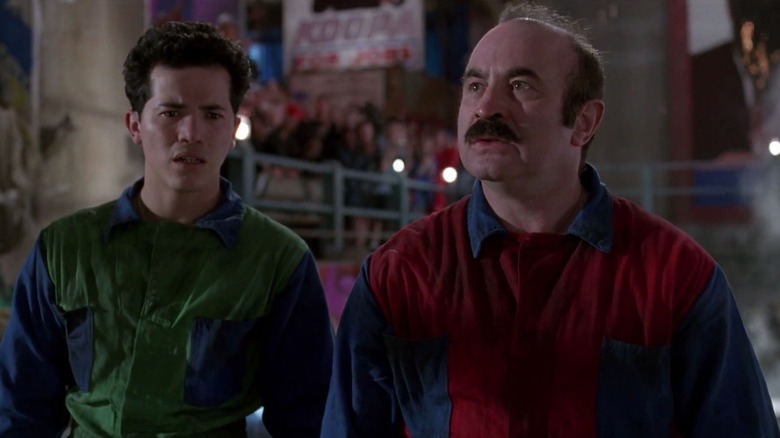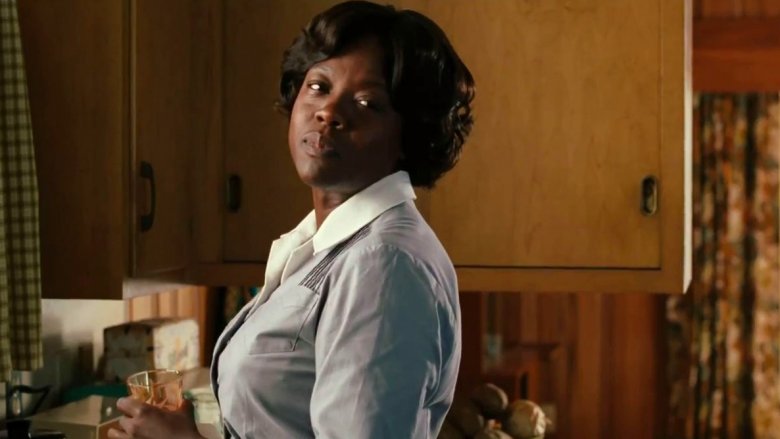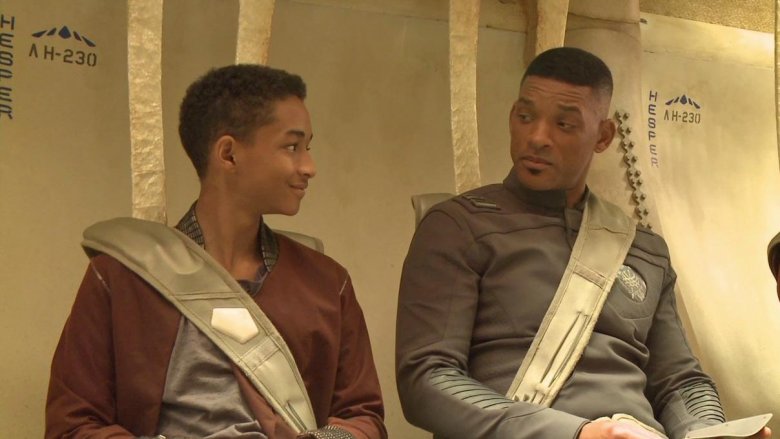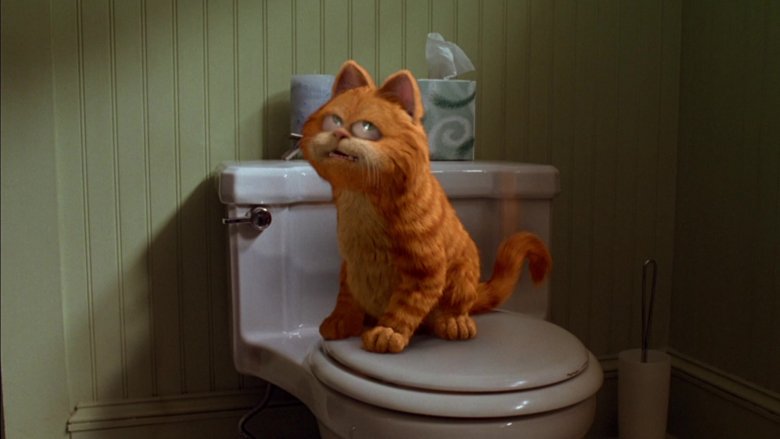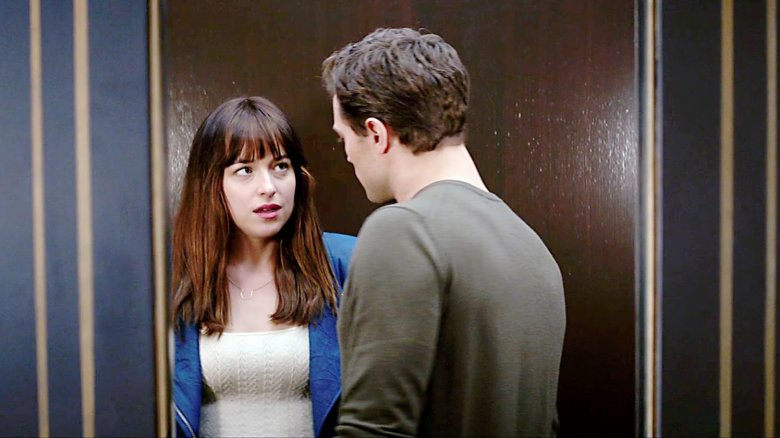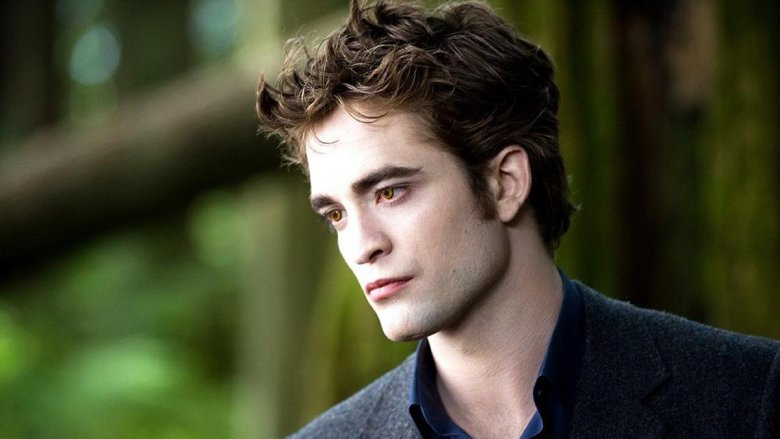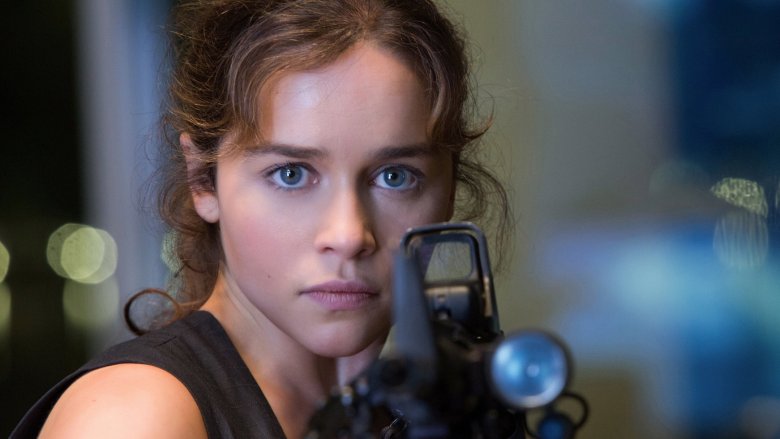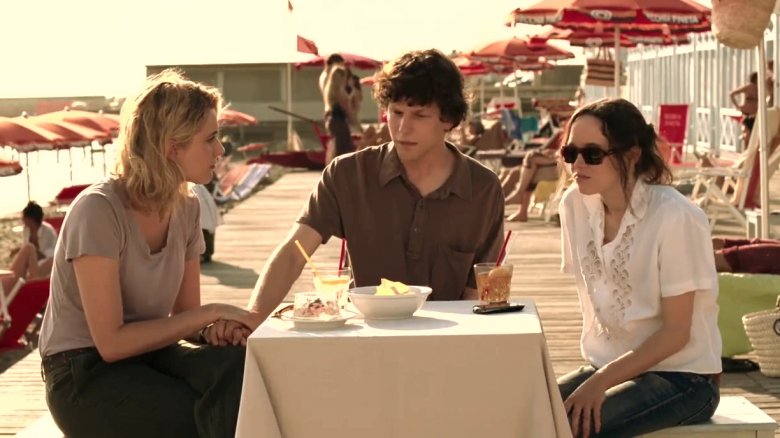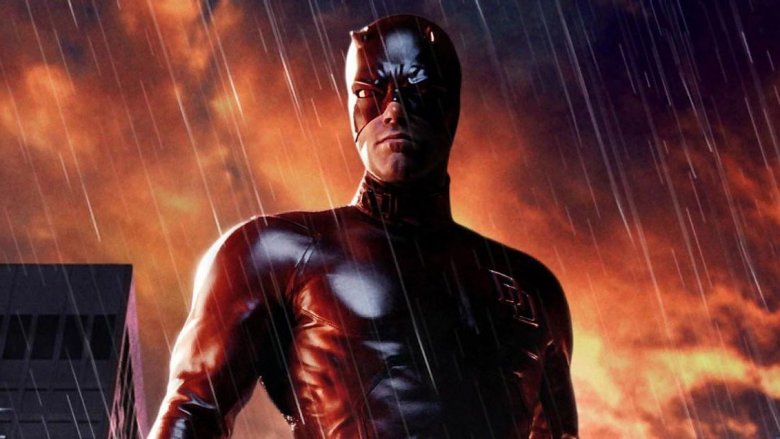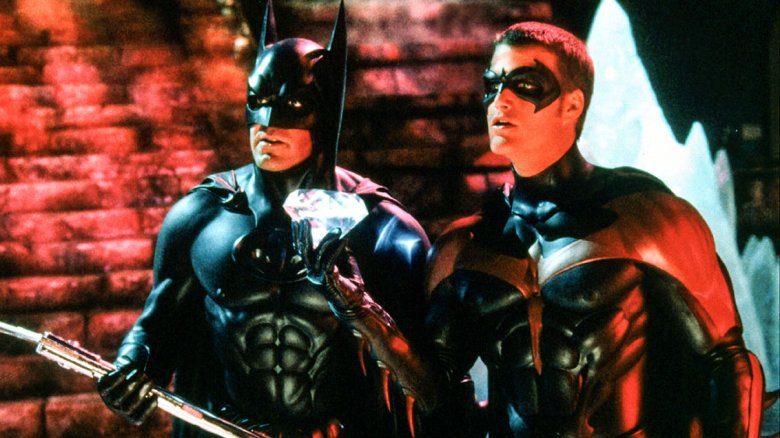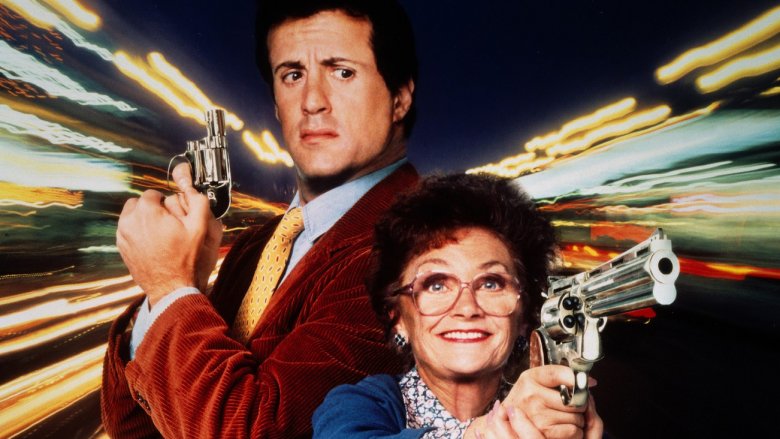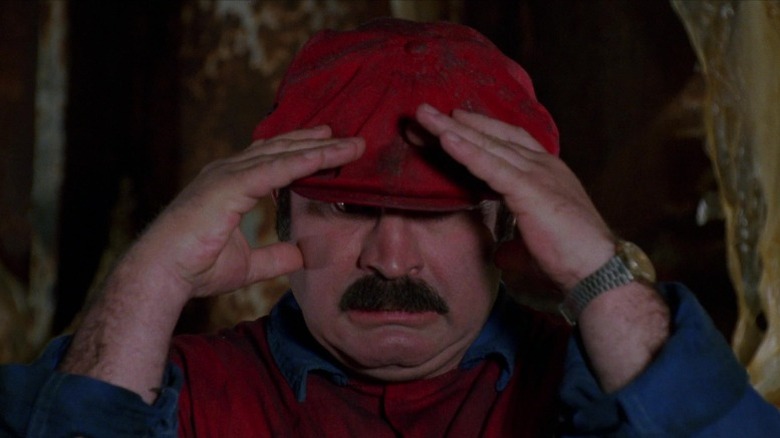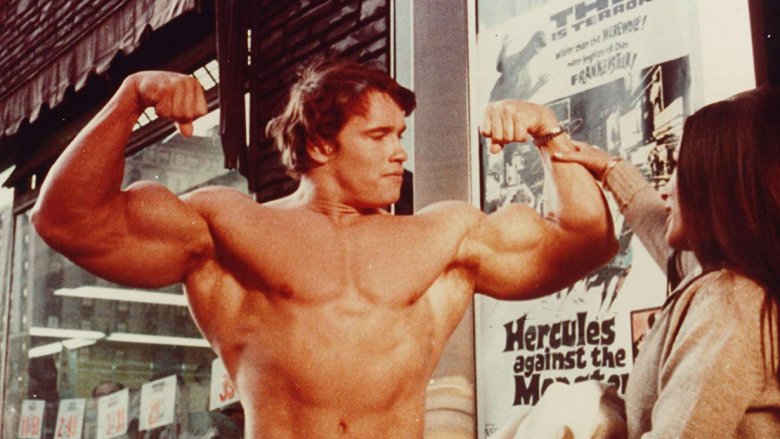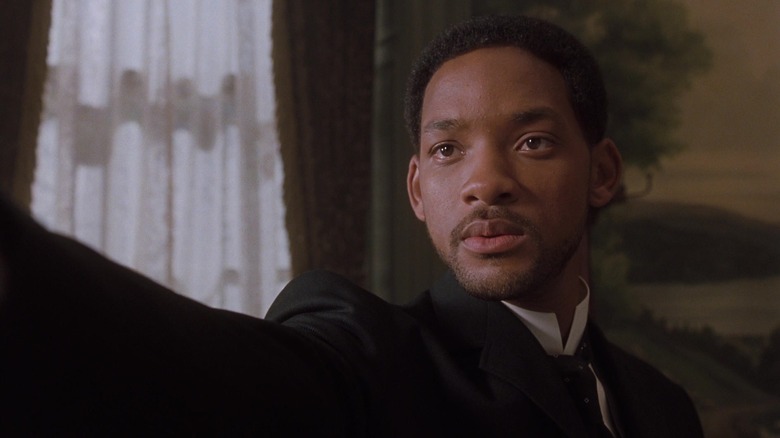Actors And The Movies They Regret Most
When a famous actor signs on for a new film, they're obligated to promote both the movie and their role in it, no matter how much input they had in the project as a whole. Whether it's Brie Larson positioning herself as a new superhero, Henry Golding establishing himself as a romantic lead in "Crazy Rich Asians," or Amy Adams vying for her next Oscar nomination, a new film can make or break any actor, wherever they are in their career.
With that in mind, a flop can potentially ruin an actor's prospects in the industry — whether they're a newcomer or a veteran, whether it's due to bad reviews, poor box office results, their own misgivings about the projects, or any other factor that made them regret their choice. Many actors look back on certain movies without fondness, thanks to on-set problems, disappointing scripts, or any number of other problems. Here are just a few actors who regretted some of their roles, movies, and decisions.
Viola Davis, The Help
2011's "The Help," based on the popular novel by Kathryn Stockett, told the story of several maids and the families they worked for in the Mississippi of the 1960s, attempting to bridge an ugly time in American history by relaying another side of the civil rights movement. Starring Viola Davis, Octavia Spencer, Emma Stone, Jessica Chastain, and Bryce Dallas Howard (with Davis, Spencer, and Chastain receiving Oscar nominations and Spencer winning her first), the film chronicled Eugenia "Skeeter" Phelan's (Stone) mission to publish a book told from the perspective of Mississippi's maids, including Aibileen (Davis) and Minny (Spencer).
Even though Davis received her second Oscar nomination for the role (eventually losing to her good friend and "Doubt" co-star, Meryl Streep), she has since admitted that she has reservations about her role in "The Help," directly noting that she regrets taking the part and saying she'd hoped the film would focus more on the disenfranchised maids rather than their white employers. Davis has never been shy about speaking her mind, and for a film that was supposed to support those without a voice, she eventually decided that it fell short.
Will Smith, After Earth
Based on an idea conceived by Will Smith, "After Earth," directed by M. Night Shyamalan, told the tale of a father and son in the distant future (played by Smith and his son Jaden) who spend their time leading space expeditions to find inhabitable planets and accidentally land on a damaged, dangerous Earth. As the two are separated and struggle to survive on an unfamiliar and hostile planet filled with lethal creatures, audiences follow the journey of Jaden's character Kitai, who must reunite with his father while still overcoming insurmountable odds to save his own life.
Despite the stars' best efforts, the film flopped at the box office and performed similarly poorly with critics, which was surprising considering that Smith, with a string of hits under his belt, was once widely considered to be a box office slam-dunk. In the aftermath of "After Earth," Smith admitted that the film was was "the most painful failure" of his career, making his regrets about the project quite clear.
Bill Murray, Garfield
Anyone who's ever opened a newspaper is familiar with Garfield, a surly orange cat who loves lasagna and hates Mondays. At the same time, most avid moviegoers are familiar with Bill Murray, the comedy legend who rose to prominence on "Saturday Night Live" and starred in famous films like "Ghostbusters," "Caddyshack," "Groundhog's Day," and more. When "Garfield: The Movie" was released in 2004, Murray served as the voice of the titular feline, and the film was a surprise hit at the box office, earning $200 million against a modest budget of $50 million.
Even so, it baffled Murray's fans as to why the normally picky actor (who can reportedly only be contacted through an 800 number rather than an agent) chose "Garfield" as one of his projects. Their question was later answered — as it turned out, Murray apparently assumed that Joel Cohen, the writer of "Garfield," was one half of writer-director duo the Coen brothers (comprised of Joel and Ethan), and wanted to appear in one of their films. Despite being duped and even calling the film his greatest regret in a different movie, Murray reprised his role in the sequel "Garfield: The Tale of Two Kitties," so this could be yet another one of his famous jokes.
Dakota Johnson and Jamie Dornan, The Fifty Shades Trilogy
The "Fifty Shades" book trilogy made serious waves upon its release thanks to its graphic and raunchy scenes between Christian Grey, young and sadistic multi-millionaire, and Anastasia Steele, the naïve young woman who he seduces. Thanks to its sales, it was only a matter of time until it was made into a film series. Jamie Dornan and Dakota Johnson were eventually cast to play the leads, beating stiff competition, and though the two achieved box office success with the trilogy, they may not have been pleased with their roles.
Dornan notably hated the entire series and was fairly unsubtle about the entire thing; in the end, he admitted he "couldn't believe" that he even participated, infuriating millions of fans who loved him as the brooding, possessive hero. Dakota Johnson (daughter of Melanie Griffith and Don Johnson), who played Anastasia, was on the same page, saying that the film put her on a "path" she didn't anticipate and that though it gave her the exposure she needed, the feelings about it came in "waves." In the end, both stars had diplomatic approaches to describing their distaste for this multi-million dollar franchise.
Robert Pattinson, Twilight
Stephenie Meyer's "Twilight" book series was an immediate hit when the first installment arrived on shelves in 2005, telling the story of Bella Swan, an impressionable teenager who unexpectedly encounters a century-old vampire, Edward Cullen, at her high school — and, even more unexpectedly, falls in love with him. As the two traverse an undoubtedly tricky relationship and face a number of dangers, they quibble with werewolves, get married, and even end up with a half-human, half-vampire child. A film franchise followed in 2008 thanks to overwhelming demand, and with Kristen Stewart as Bella and Robert Pattinson as Edward, the series grossed nearly $3.3 billion at the box office, creating a pop culture phenomenon for years to come. (In fact, a particularly dirty piece of "Twilight" fan fiction is what led to the creation of "Fifty Shades of Grey.")
Still, throughout the series, the young actors involved — including Oscar nominee Anna Kendrick — seemed displeased with their involvement, and have treated their experience with the saga quite negatively in years since. Robert Pattinson was by far the most vocal about his hatred for the series, between calling Edward a prude, saying the noise of "Twilight" fans screaming sounded like the "gates of hell," calling the series' author Stephenie Meyer insane, coming up with his own bizarre nickname to use instead of "RPattz," and more, making it clear that he hated the movies more than anybody else involved.
Emilia Clarke, Terminator Genisys
Upon its release in 1984, the original "Terminator" film became an instant classic, cementing Arnold Schwarzenegger as a movie star and launching the career of then-unknown director James Cameron. Thanks to its critical and commercial success, the film ended up creating an entire franchise which has spanned decades and has included sequels, comic books, and a television series. The second film installment, 1991's "Terminator 2: Judgment Day," was an even bigger success than the first, thanks to its astounding visual effects and exciting action sequences, even winning multiple Academy Awards. Viewers demanded more adventures within this action-packed universe, and studio execs have been only too happy to comply.
2015's "Terminator Genisys" was the fifth installment in the series — meant as a "soft reboot," it featured Schwarzenegger's return to the franchise after one movie away. Less than stellar box office performance and a terrible reception from critics, its planned sequel was eventually canceled — which definitely came as a relief to star Emilia Clarke, best known as Daenerys Targaryen on "Game of Thrones." In fact, Clarke later told Vanity Fair that "no one had a good time," not even director Alan Taylor (with whom Clarke frequently worked on "GoT").
Greta Gerwig and Elliot Page, To Rome with Love
There was once a time when few actors would even consider turning down an opportunity to work with Woody Allen. One of the most influential writers and directors in film history, Allen is a multiple Academy Award-winner, and movies like "Annie Hall," "Hannah and her Sisters," and "Crimes and Misdemeanors" are widely viewed as classics. However, even after his controversial marriage to Soon-Yi Previn (the adopted daughter of his former partner Mia Farrow, with whom he had other children, including Ronan Farrow), Allen's personal life often took over headlines; in 2014, Dylan Farrow, one of Mia Farrow's other adopted children, repeated her allegations of sexual abuse against the famous director.
In the aftermath of Dylan Farrow's compelling story and the rise of the #MeToo movement, Allen became a public relations nightmare for the actors and artists who chose to work with him, and they started speaking out against him in droves. Two notable examples: Greta Gerwig and Elliot Page, who appeared in 2012's "To Rome With Love." Both actors have spoken out against everything from gender inequality in film to their own experiences with assault, and they didn't mince words looking back on their time on the set with Allen — Gerwig has said she wouldn't work with the director again, while Page called it the "biggest regret" of his career.
Ben Affleck, Daredevil
Following the huge success of "Spider-Man2 in 2002, the demand for superhero movies was high, so it made sense to cast huge star Ben Affleck in "Daredevil," a film about a long-running Marvel Comics superhero. Alongside Affleck as Matt Murdock, a blind lawyer who is a vigilante known as Daredevil by night, the cast was rounded out by Jennifer Garner as Elektra (another superhero and Murdock's love interest), Colin Farrell as brutal assassin Bullseye, and Michael Clarke Duncan as the vicious crimelord known as Kingpin. Though the film performed well at the box office, further establishing Marvel properties as a box office draw, it was panned by critics, and remains an infamous example of one of the worst comic-to-film adaptations in the modern era.
Affleck, whose career has seen plenty of highs and lows, clearly agrees, as he admitted in 2013 that he "actually regrets" Daredevil despite loving the character, and wishes the film had gone better. That failure is what drove him to take the role of Batman the same year, despite widespread criticism. It's a little crazy to think that the actor who also starred in "Gigli" could have an even bigger regret, but clearly, Murdock's botched big-screen debut still weighs on Affleck.
George Clooney, Batman & Robin
Sometimes, a superhero movie can catapult an actor to stardom even if they're already well known, like when Robert Downey Jr. breathed new life into his career by stepping into Tony Stark's Iron Man suit. Other times, however, that same opportunity can become an actor's biggest regret. Even for an actor like George Clooney, who seems impervious to professional misfortune, a bad superhero film can become a blight on any performer's career, and Clooney's time as the Caped Crusader in 1997's "Batman & Robin" proves it. Directed by Joel Schumacher, it's become a long-running joke, is routinely called one of the worst films of all time, and is the lowest-grossing live-action Batman movie to date, shutting down the entire franchise until its 2005 reboot, "Batman Begins."
Clooney's career didn't suffer any serious decline after "Batman & Robin" — highly regarded as an actor who can transition easily between dramatic and comedic roles, he's won two Academy Awards, become a lauded director, and even received the AFI Lifetime Achievement Award in 2018. Still, he told Deadline in 2013 that he keeps a photo of himself as Batman in his office as a reminder of what happens when you make a movie for purely commercial reasons.
Sylvester Stallone, Stop! Or My Mom Will Shoot
As the self-made star of Rocky, Sylvester Stallone had his pick of projects for several decades, known as an actor capable of handling action scenes just as easily as serious, dramatic moments. Never exactly known for his comedy, he shocked audiences by taking a light-hearted detour with 1992's "Stop! Or My Mom Will Shoot," an odd buddy-cop outing that paired Stallone with Estelle Getty, best known for her role as Sophia on "The Golden Girls." A mother and son team, the two banded together to solve crimes — a flimsy premise that was met with predictably terrible reviews, with the film earning a dismal 8 percent on Rotten Tomatoes.
The script for the film was infamously bad — so bad that it was hard not to wonder what Stallone, who'd admittedly chosen his fair share of clunkers, saw in the project. Arnold Schwarzenegger later took the blame, admitting that he feigned an interest in starring in the film to trick his action hero rival into taking the role and harpooning his own career. For his part, Stallone has made it clear that he's far from fond of this film, calling it "the worst" of his career and admitting that he regrets making it in the first place.
Bob Hoskins, Super Mario Bros.
Released in 1993 and based on one of the most popular video games of all time, "Super Mario Bros." set an unfortunate standard for video game films. A complete failure both critically and commercially thanks to its flimsy plot and terrible writing, the movie starred the late Bob Hoskins as Mario and John Leguizamo as his brother Luigi, with a plot revolving around a scenario that mimicked the gameplay itself — Mario and Luigi had to find and rescue Princess Peach (Samantha Mathis) from the evil King Koopa (Dennis Hopper).
Hoskins, an accomplished and well-regarded British actor best known for "Mona Lisa" and "Who Framed Roger Rabbit," made no secret of his disdain for the film — during a Q&A in 2011, he was extraordinarily clear that the project was the biggest regret of his entire career. To his credit, Leguizamo felt the same way, but was kinder about it, praising the rest of the cast and crew for doing their best in a bad situation.
Arnold Schwarzenegger, Hercules in New York
Arnold Schwarzenegger can claim a successful political career and impressive acting resume, but even he hasn't been immune to a stinker or two, and "Hercules in New York" is certainly among his worst — if not the worst of them all. This low-budget comedy, featuring Schwarzenegger (billed as Arnold Strong) as a Hercules who's banished to New York by his angry father Zeus, immediately becoming an extraordinarily strong fish out of water in the Big Apple. Along the way, Hercules becomes a successful professional wrestler, and ends up winning his freedom when a group of gangsters bet against some rival gods to see if he'll win an important match.
Schwarzenegger was just 22 when the film was produced, and with this as one of his earliest efforts, it's incredible he was able to build a career afterwards — "Hercules in New York" earned terrible reviews and would be largely forgotten if not for its star. For his part, Schwarzenegger clearly hasn't forgotten about it; in fact, he's publicly said he regrets making it at all.
Will Smith, Wild Wild West
After making a name for himself as an actor in the title role on "The Fresh Prince of Bel-Air," Will Smith appeared in huge hit films like "Bad Boys," multiple "Men in Black" installments, "Ali," "The Pursuit of Happyness," and "I Am Legend," but as it turns out, even he has a few regrets when it comes to some of his biggest roles.
In 1999, Smith took a lead role in "Wild Wild West" alongside Kevin Kline, but in retrospect, he wishes he'd signed on to a different project. He famously turned down the lead role of Neo in "The Matrix," which ultimately went to Keanu Reeves, in favor of "Wild Wild West," and while Smith's movie premiered to scathing reviews, Reeves enjoyed a career-redefining hit in the Wachowski's dystopian epic, which went on to spawn multiple sequels. In an interview with Stephen Colbert, Smith was asked what advice he would give to his younger self. After some thought, he said, "I just thought of something I would tell myself [...] I would go, 'Hey man, don't do Wild Wild West!' I would say, 'Dude, do Neo! Do Neo!'"
